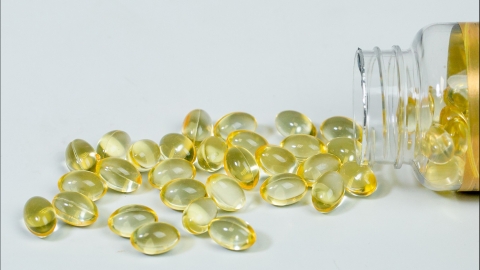Are there any side effects of DHA?
Generally speaking, DHA refers to docosahexaenoic acid, an essential polyunsaturated fatty acid required by the human body. DHA may have certain side effects, including effects on coagulation function, allergic reactions, oral odor, immune system modulation, and oxidative damage. Detailed analysis is as follows:

1. Effects on Coagulation Function
DHA contains multiple unsaturated bonds in its chemical structure. This structure can interfere with the platelet aggregation process, thereby prolonging blood clotting time. For individuals with impaired coagulation function or those taking anticoagulant medications, whose coagulation mechanisms are already fragile, excessive intake of DHA may further disrupt the coagulation balance, significantly increasing the risk of bleeding.
2. Allergic Reactions
DHA is commonly extracted from sources such as fish oil. If an individual is allergic to these food sources, their immune system may recognize DHA as a foreign antigen. Once activated, the immune system releases allergic mediators such as histamine, which can trigger a series of allergic symptoms affecting the skin and respiratory system.
3. Oral Odor
DHA has strong lipophilic properties. In the oral environment, it can easily interact with oral bacteria and be metabolized by them, producing substances with a distinct odor. Additionally, other ingredients in the supplement, such as excipients, may produce odorous byproducts during digestion and decomposition in the gastrointestinal tract, which may reflux through the esophagus into the oral cavity, causing bad breath.
4. Effects on the Immune System
Excessive DHA entering the body may alter the lipid composition of immune cell membranes, affecting signal transduction pathways in immune cells. As a result, immune cell function may be impaired, leading to immune imbalance and a reduced ability to mount normal immune defenses, making the body more susceptible to pathogen invasion.
5. Oxidative Damage
The structure of polyunsaturated fatty acids determines that DHA is chemically unstable and highly prone to react with oxygen, generating free radicals within the body. If the body's antioxidant system is compromised or unable to effectively neutralize these free radicals, they may attack biomolecules such as proteins and DNA inside cells, causing oxidative damage to cells and tissues.
It is recommended to follow the advice of a physician or nutritionist to control DHA intake and avoid excessive consumption. Individual responses to DHA may vary, so it is best to consult a qualified healthcare professional before starting DHA supplementation.






